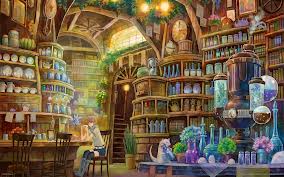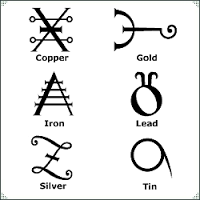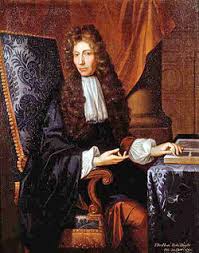Overview
Before there was a science of chemistry, there was alchemy. It was practiced in China, India, Mesopotamia, and Europe. The alchemists from ancient times performed experiments to transform base metals, such as lead, to precious metals, such as gold. Some of the side products of their quest included the development of scientific inquiry and measurement; symbols for elements and processes; the concepts for elements and compounds, combining them to form prescriptions; and the modern science of chemistry.
Scientific Inquiry and Measurement
Many alchemists insisted upon precise measurement, experimentation, and relentless scientific inquiry in their quest for esoteric items such as the philosopher’s stone and the transmutation of lead into gold. (There actually was a real Nicolas Flamel, who lived in the 14th century, and many alchemical works were attributed to him in the 17th century, leading to a worldwide posthumous reputation.) They combined elements in specific ways, applied specific processes, measured results, and communicated with other alchemists who were of a like mind, similar to modern scientists.
Symbols for Elements and Processes
Alchemists detailed their observations using symbols that were known to other alchemists, and communicated using those symbols. For example, there were common symbols for such elements as gold, silver, iron, mercury, sulfur, lead, nitric acid, and other substances. It wasn’t until the 19th century that chemists began to use letters of the alphabet for chemical elements and compounds.
Elements, Compounds, and Prescriptions
Paracelsus was an alchemist who lived in the 15th century. He was concerned with how chemical elements and compounds could be combined to create medicines, rather than transmuting lead to gold. Although some of those “prescriptions” were actually harmful, the alchemical symbol Rx(for “recipe”) is still used to this day.
The alchemist Robert Boyle lived in the 17th century. He developed an offshoot of alchemy that was known for an emphasis on experimentation, what was contained in substances, scientific inquiry, and scientific skepticism, known as the science of chemistry. He developed general laws of the expansion of gases, combustion, respiration, elements, compounds, and mixtures. For many years, chemistry was a branch of alchemy. Discoveries in the scientific portions of alchemy and its offshoot, chemistry, were interchangeable. Many famous scientists of the day, such as Isaac Newton, the astronomer Tycho Brahe, and the physician von Helmont, were known more in their lifetimes for alchemy than for science. Isaac Newton wrote more about alchemy than the laws of gravity that bear his name.
Interested in chemistry tutoring services? Learn more about how we are assisting thousands of students each academic year.
SchoolTutoring Academy is the premier educational services company for K-12 and college students. We offer tutoring programs for students in K-12, AP classes, and college. To learn more about how we help parents and students in Little Rock, AR: visit: Tutoring in Little Rock, AR




